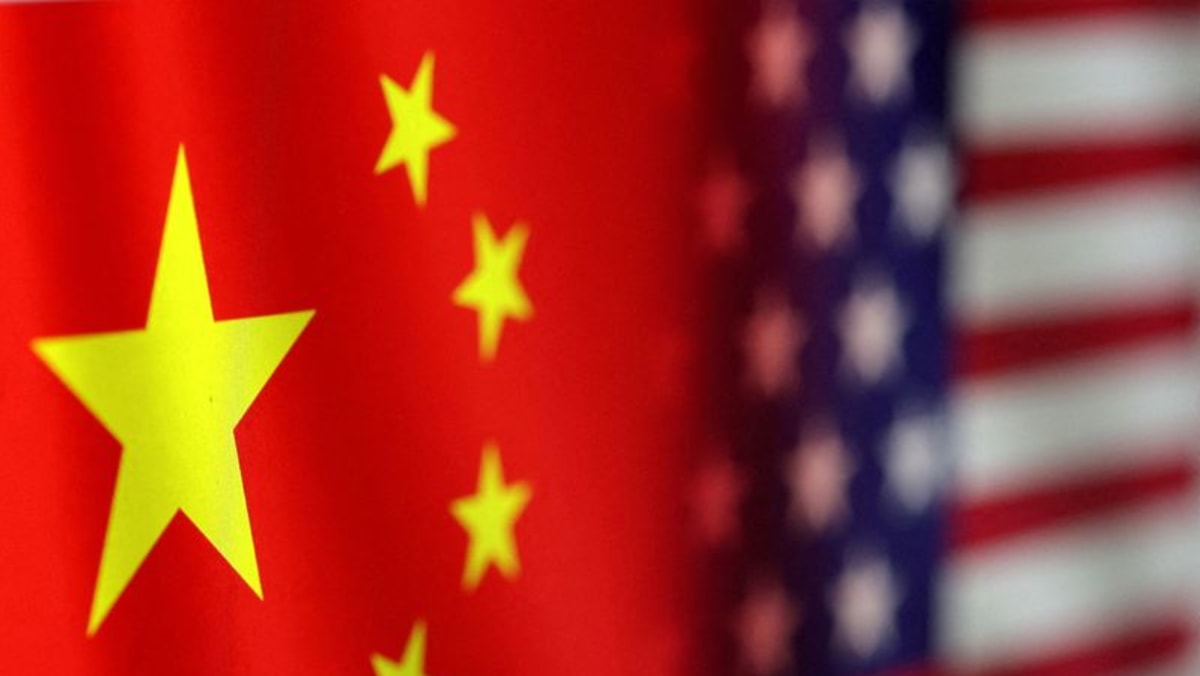After Assad’s ouster, Syrian rebel leader tightens his grip on the state

DAMASCUS: Rebel leader Ahmad al-Sharaa’s militant group is stamping its authority on Syria’s state with the same lightning speed that it seized the country, deploying police, installing an interim government and meeting foreign envoys – raising concerns over how inclusive Damascus’ new rulers intend to be.
Since Sharaa’s Hayat Tahrir al-Sham (HTS) group swept Bashar al-Assad from power on Sunday (Dec 8) at the head of a rebel alliance, its bureaucrats – who until last week were running an Islamist administration in a remote corner of Syria’s northwest – have moved into government headquarters in Damascus.
The appointment of Mohammed al-Bashir, the head of the regional government in HTS’ enclave of Idlib, as Syria’s new interim prime minister on Monday underlined the group’s status as the most powerful of the armed groups that battled for more than 13 years to end Assad’s iron-fisted rule.
Although it was part of al Qaeda before breaking ties in 2016, HTS had reassured tribal leaders, local officials, and ordinary Syrians during its march to Damascus that it would protect minority faiths, winning broad approval. The message helped smooth the rebels’ advance and Sharaa – better known as Abu Mohammed al-Jolani – has repeated it since Assad’s ouster.
At the office of the Damascus governor, its walls exquisitely decorated with marquetry and stained glass, the man brought from Idlib to run affairs dismissed concerns that Syria was being moved towards an Islamic form of government.
“There is no such thing as Islamic governance. After all, we are Muslims and it’s civil institutions or ministries,” said Mohammed Ghazal, a bespectacled 36-year-old civil engineer with a thick beard who was raised in the United Arab Emirates and spoke in near-perfect English.
“We don’t have any problem with any ethnicity and religion,” he said. “The one who made the problem was the (Assad) regime.”
However, the way HTS has gone about shaping the new interim government – by bringing senior administrators from Idlib – has caused concern for some. Four opposition sources and three diplomats told Reuters they were concerned about the inclusiveness of the process so far.
Bashir has said he will only remain in power until March. But HTS – which remains classified as a terrorist group by the United States, regional powerbroker Turkey and other governments – has yet to spell out key details of the transition process, including its thinking on a new constitution. Sharaa, in a statement to Reuters on Wednesday, said he would dissolve the ousted regime’s security forces, close its prisons, and hunt down anyone involved in torture or killing detainees. While Syrians celebrate the fall of Assad’s brutal police state, some are voicing fears about what may come.
Wissam Bashir, 28, speaking at a Damascus cafe, expressed concern “because of the things that I’m seeing … such as the new government, the spread of Islamic flags”.
When he took office this week, Prime Minister Bashir appeared with two flags behind him – the green, black and white flag flown by opponents of Assad throughout the civil war, and a white flag with the Islamic oath of faith in black writing, typically flown in Syria by Sunni Islamist fighters.
Only the Syrian national flag appeared behind him in an interview he gave to Al Jazeera on Wednesday.
Zakaria Malahifji, secretary general of the Syrian National Movement who once served as political advisor to rebels in Aleppo, said the lack of consultation in forming an interim government was a misstep. “You are bringing (ministers) from one colour, there should be participation of others,” he said. “Syrian society is diverse in terms of cultures, ethnicities, so frankly this is concerning,” he said.
“RUINS, RUINS, RUINS”
Like other members of the HTS-affiliated Salvation Government in Idlib brought to Damascus to run state bodies, Ghazal said he had given assurances to employees and urged them to return to work. “It’s a collapsed state. It’s ruins, ruins, ruins,” Ghazal said.
His priorities for the next three months are getting basic services running and streamlining the bureaucracy. Salaries, which average some US$25 a month, would be increased in line with Salvation Government wages. Its minimum wage is US$100 a month.
“Syria is a very rich country,” said Ghazal, asked how this would be financed. “The regime used to steal the money.”
Policemen brought from Idlib are directing traffic in Damascus, trying to restore some normalcy since HTS ordered armed groups out of the city. One officer, who did not give his name, said they were stretched thin, noting they previously just had to patrol Idlib.
Though HTS is pre-eminent among the factions which fought Assad, others remain armed, notably in areas at the borders with Jordan and Turkey.
During the war, rebel factions often clashed with each other, leaving a legacy of rivalries and enmity seen as one of many risks to stability in post-Assad Syria.
Source: CNA















